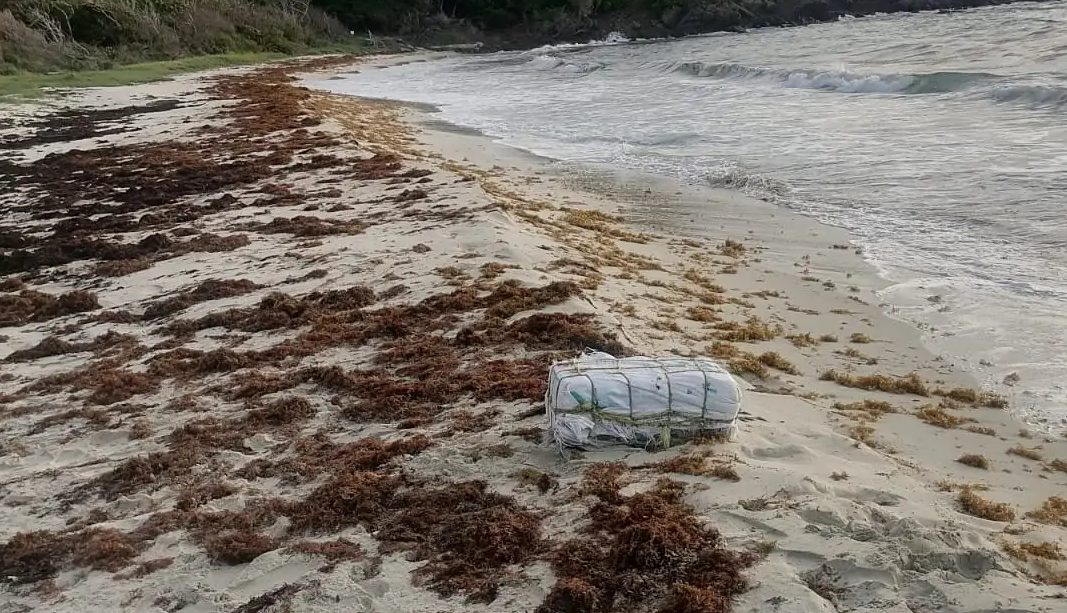NY Times claims cocaine washed up on SVG Beach
A recent article published by The New York Times claiming cocaine washed up on a beach in St. Vincent and the Grenadines (SVG) has raised serious questions about the veracity of the claims and the potential for SVG to be drawn into escalating US tensions with Venezuela.
The timing of the article, coupled with ongoing US military activity in the Caribbean, has fueled suspicions of a deliberate attempt to draw more islands in the region into the US conflict with Venezuela.
The NYT article, dated October 14, 2025, and titled “Drug Smugglers Change Supply Routes to Evade U.S. Warships,” featured a photograph purportedly showing a package of cocaine discovered on a beach in SVG.
However, several key details were conspicuously absent. For starters, the article lacked any confirmation or comment from St. Vincentian police sources – a glaring omission in any legitimate news report.
What’s even stranger is that the photograph was allegedly provided by an individual within the Narcotics Division of the Trinidad Police Force. How a Trinidadian officer came to be in possession of a photo of cocaine allegedly found in St. Vincent remains a mystery.
Furthermore, the article fails to specify which beach the package was found on, whether it was on the mainland of St. Vincent or one of the Grenadine islands.
One former U.S intelligence analyst I spoke with, who preferred to remain anonymous, said, “The lack of basic details like the location and official confirmation is a major red flag. It makes you wonder what the real agenda is here.”
Adding to the uncertainty, sources within St. Vincent’s intelligence services told the St. Vincent Times that their records show no major drug haul in recent months. This directly contradicts the implication of the NYT article.
When contacted, multiple sources within U.S. intelligence circles acknowledged they are “watching all Southern Caribbean islands for drug trafficking,” confirming that “nothing is off our radar.” Regarding the NYT article and its specific mention of St. Vincent, the source offered a carefully worded response: “We are aware; however, there is no specific information we can give, except to say the island, like others in the Southern Caribbean, continues to be a drug route for South American smugglers.”
This statement, while vague, does little to dispel concerns that the US may be exaggerating the situation to justify increased military presence and intervention in the region.
Amidst a wave of U.S. military strikes in the Caribbean and alleged plans for covert operations in Venezuela, Sen. Tim Kaine, D-Va., is leading a bipartisan effort to curb President Trump’s authority to unilaterally declare war on the South American nation.
Kaine, a vocal advocate for congressional oversight on matters of war, recently filed a resolution to force a Senate vote on the issue. “The pace of the announcements, the authorization of covert activities, and the military planning makes me think there’s some chance this could be imminent,” Kaine told reporters, highlighting growing concerns about potential military intervention in the region.
Since September, the Trump administration has authorized at least five U.S. military strikes on boats suspected of smuggling illegal drugs, resulting in at least 27 reported deaths. The identities of those killed have yet to be disclosed.
As the story continues to develop, many questions remain unanswered about the true nature of the alleged cocaine discovery and its broader geopolitical significance in the current context.





